Shark attacks: is it safe to go in the water?
Sydney records first fatal shark attack in almost 60 years
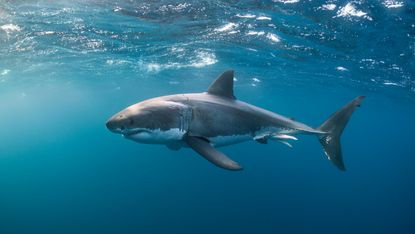
A British expat has become the victim of the first fatal shark attack in Sydney since 1963, fuelling fears of an increase in similar incidents in waters worldwide.
Simon Nellist, a 35-year-old diving instructor from Cornwall, was mauled by a great white shark at a popular fishing spot near Little Bay in the southeast of the Australian city on Wednesday. “We heard a yell and turned around. It looked like a car had landed in the water,” a witness told Australian news service Nine News, adding that the lethal predator appeared to be about 4.5 metres (15ft) long.
Most fatal attacks since 1929
Shark attacks are rare in Sydney, where many beaches have been guarded by nets and other deterrents in the water since the 1930s. But the fishing spot where Nellist was killed is a deep-water location, so “it would not have been protected using shark nets even if they had been deployed in the area”, said the Australian Broadcasting Corporation (ABC).
Subscribe to The Week
Escape your echo chamber. Get the facts behind the news, plus analysis from multiple perspectives.

Sign up for The Week's Free Newsletters
From our morning news briefing to a weekly Good News Newsletter, get the best of The Week delivered directly to your inbox.
From our morning news briefing to a weekly Good News Newsletter, get the best of The Week delivered directly to your inbox.
Australia usually averages around 20 shark attacks per year. But five “unprovoked” attacks have already been recorded so far in 2022, according to the Australian Shark Incident Database.
The vast majority of shark attacks are not fatal. According to the BBC, “in over a century of records, the shark attack mortality rate is 0.9 – less than one person per year”.
But in 2020, Australia reported eight fatal attacks – the highest number since 1929. Most of the victims were surfers, rather than swimmers, “which meant they were often out in deeper waters and in more inaccessible areas”, said the broadcaster.
An increase in shark attacks has also been reported across the Pacific, in Cape Cod, the hook-shaped peninsula of the US state of Massachusetts.
Sign up for Today's Best Articles in your inbox
A free daily email with the biggest news stories of the day – and the best features from TheWeek.com
According to The New York Times, Massachusetts recorded just three injury-causing shark attacks in the whole of the 20th century. But in the last ten years, white sharks at Cape Cod have reportedly “been implicated in five attacks, including two on swimmers, one on a boogie boarder and one each on a stand-up paddle board and a kayak with a person aboard”.
To conservationists, the increasing numbers of great whites reported in the waters around Cape Cod is a “success story, a welcome sign of ecosystem recovery at a time when many wildlife species are depleted”, the paper continued.
But this “success story” also “puts large numbers of people in close contact with a fast and efficient megapredator”.
Global increase
Shark attacks increased globally in 2021 “following three consecutive years of decline”, the Associated Press reported. Data from the Florida Museum of Natural History’s International Shark Attack File shows that 73 unprovoked attacks (including 11 fatalities) were reported in 2021, up from 52 in 2020.
Experts noted that 2020 marked a record low, in part owing to the closure of beaches during the Covid-19 pandemic. But Gavin Naylor, the director of the Florida Museum’s shark research programme, also attributed last year’s spike to “expanding numbers of white sharks”.
Naylor added that the predator’s population recovery was “likely in response to a boom in the seal populations they feed on”. Throughout history, harbour seals have been widely hunted for their skins, oil, and meat, with their populations dwindling as a result.
But the species has seen a boom in the US since becoming federally protected under the 1972 Marine Mammal Protection Act (MMPA).
Protected species
The increase of great white sharks off the coast of California has also been linked to conservation efforts. The sharks become a protected species there in 1994, when the use of gill nets (a commercial fishing method that unintentionally entangled large sea creatures such as sharks, sea lions and dolphins) was also banned.
Changing climates and weather patterns may impact shark behaviours too.
In 2019, researchers at Sydney’s Macquarie University identified a slight increase in the risk of shark attacks following heavy rainfall. The experts suggested that such rains “flush nutrients into the sea” and create an abundance of fish, seals and other prey that attracts sharks, explained the BBC.
Study co-author Nathan Hart, an associate professor of biological sciences, told the broadcaster that in the future, we could “potentially see an increase or equally a decrease in shark attacks” in response to “changing environmental variables”, as coral reefs, mangrove forests and the other natural habitats favoured by their species are destroyed as a result of climate change.
Create an account with the same email registered to your subscription to unlock access.
-
 Nigeria's worsening rate of maternal mortality
Nigeria's worsening rate of maternal mortalityUnder the radar Economic crisis is making hospitals unaffordable, with women increasingly not receiving the care they need
By Harriet Marsden, The Week UK Published
-
 'Elevating Earth Day into a national holiday is not radical — it's practical'
'Elevating Earth Day into a national holiday is not radical — it's practical'Instant Opinion Opinion, comment and editorials of the day
By Harold Maass, The Week US Published
-
 UAW scores historic win in South at VW plant
UAW scores historic win in South at VW plantSpeed Read Volkswagen workers in Tennessee have voted to join the United Auto Workers union
By Peter Weber, The Week US Published
-
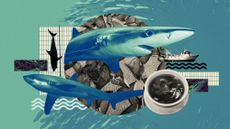 Shark populations are continuing to decline despite bans on finning
Shark populations are continuing to decline despite bans on finningUnder the Radar What exactly are the bans doing?
By Justin Klawans, The Week US Published
-
 Can the world really wean itself off coal?
Can the world really wean itself off coal?Today's Big Question 'Record' global consumption is set to fall soon but growing demand in China and India could increase tensions
By Harriet Marsden, The Week UK Published
-
 The ancient megalodon shark survival myth
The ancient megalodon shark survival mythUnder the Radar Study provides clues to giant predator’s disappearance and debunks social media theories of its survival
By Harriet Marsden Published
-
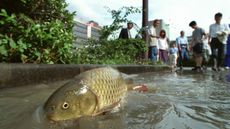 ‘Serious conversation’ needed over release of carp herpes into Australian waters
‘Serious conversation’ needed over release of carp herpes into Australian watersSpeed Read Flooding means ‘bottom-feeding pests’ are appearing in huge numbers
By Chas Newkey-Burden Published
-
 Was Toadzilla the biggest toad of all time?
Was Toadzilla the biggest toad of all time?Speed Read Massive amphibian found in north Australian rainforest was ‘like a football with legs’
By Chas Newkey-Burden Published
-
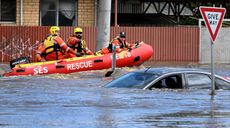 Severe flooding continues to pummel parts of Australia
Severe flooding continues to pummel parts of AustraliaSpeed Read
By Justin Klawans Published
-
 The link between colonialism and climate change examined
The link between colonialism and climate change examinedfeature Top scientists point to connection for first time in new IPCC study
By The Week Staff Published
-
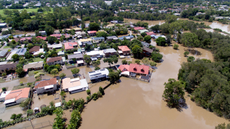 Rain bombs and megaflash lightning: Australia experiences unprecedented weather
Rain bombs and megaflash lightning: Australia experiences unprecedented weatherWhy Everyone’s Talking About Nine people have been killed during days of torrential rainfall and flooding
By The Week Published